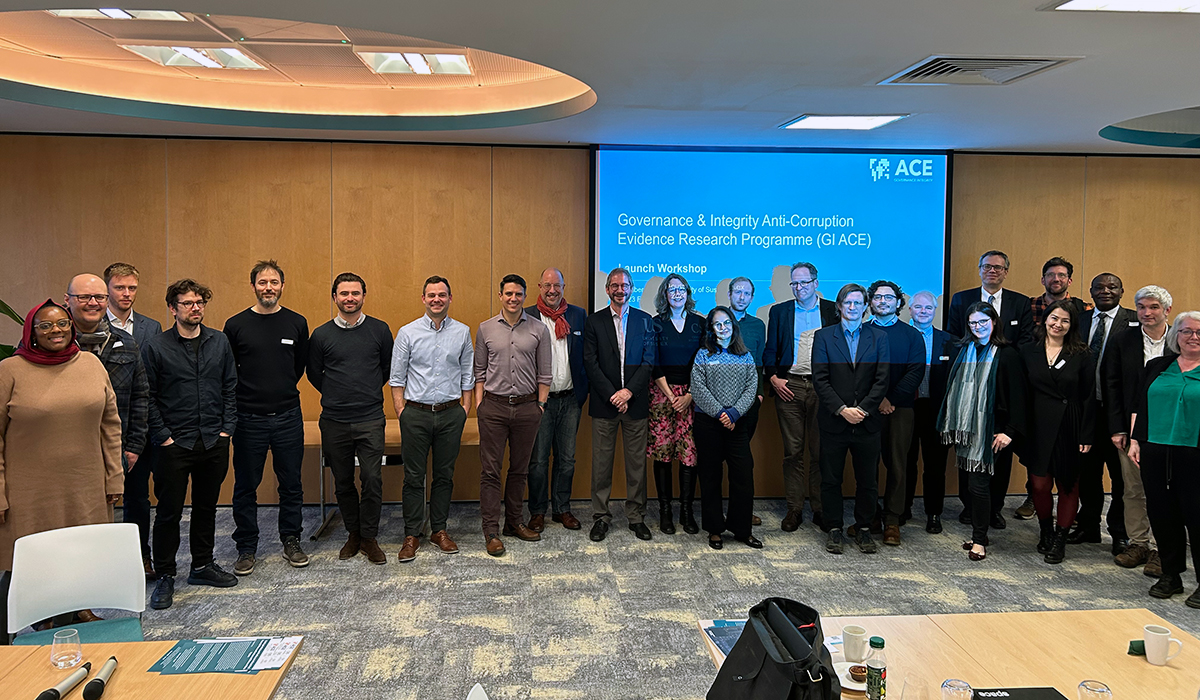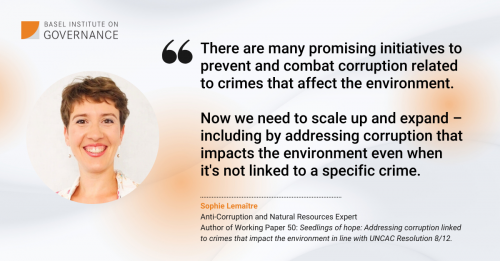Corruption risks and health crises in Malawi: new GI-ACE research project

We are excited to launch a new project on addressing corruption risks in the emergency response of the Malawian health system.
Our team of collaborators will analyse corruption risks emerging in three kinds of crisis situations:
- external shocks from a pandemic, like covid 19;
- internal crises such as recurrent cholera outbreaks; and
- extreme climate events such as cyclones, floodings and resulting displacement of the population.
Working together with key local stakeholders in a participatory manner, we will then develop innovative approaches to preventing and mitigating corruption in that context.
Dr Claudia Baez Camargo, Head of Prevention, Research and Innovation at the Basel Institute and Principal Investigator on the project, formally kicked off the three-year project at the launch event of the Governance & Integrity Anti-Corruption Evidence Programme in February 2024.
The GI-ACE programme is funded by the UK’s Foreign, Commonwealth and Development Office and is based at the University of Sussex's Centre for the Study of Corruption.
A novel approach
The project will explore different types of corruption affecting the emergency response of the Malawian health system in order to understand whether these are simply an exacerbated version of corruption patterns plaguing the health system in “normal times” or whether emergencies give rise to unique, additional corruption patterns.
Through a participative process with key local stakeholders and inputs from an advisory group of experts, corruption patterns identified in the health system’s emergency response will be prioritised based on how relevant they are and how feasible they are to address.
The prioritised corruption patterns will be thoroughly researched to understand formal, informal and behavioural drivers and enabling factors. This research is essential for the design of tailored and impactful interventions. The use of behavioural insights can increase the impact of anti-corruption initiatives, for example, by correcting misperceptions or addressing perceived social norms. The research is also essential to ensure crisis responses do not exacerbate or fuel corruption risks.
Ultimately, the team will provide detailed guidance on developing and implementing high-impact, technologically and politically feasible strategies to address corruption in the crisis response of the health system in Malawi.
Project collaborators
Our team looks forward to working with:
- Institutional partners in Malawi, including the Anti-Corruption Bureau and the Ombudsman.
- Professor Eric Umar, an expert specialist in health system governance from the Kamuzu University of Health Sciences, Malawi.
- Professor Dina Balabanova, a renowned expert in the field of corruption and anti-corruption in health systems from the London School of Hygiene & Tropical Medicine.
- Dr Maqueda López, from the EssentialTech Centre of the Swiss Federal Institute of Technology Lausanne (EPFL), an innovation centre specialising in harnessing science and technology to address extreme vulnerability.
- Professor Thorsten Chmura, an expert in experimental and behavioural economics at Nottingham Trent University.
Learn more
See previous research by our Prevention, Research and Innovation team (formerly “Public Governance) under an earlier edition of GI-ACE programme on:



